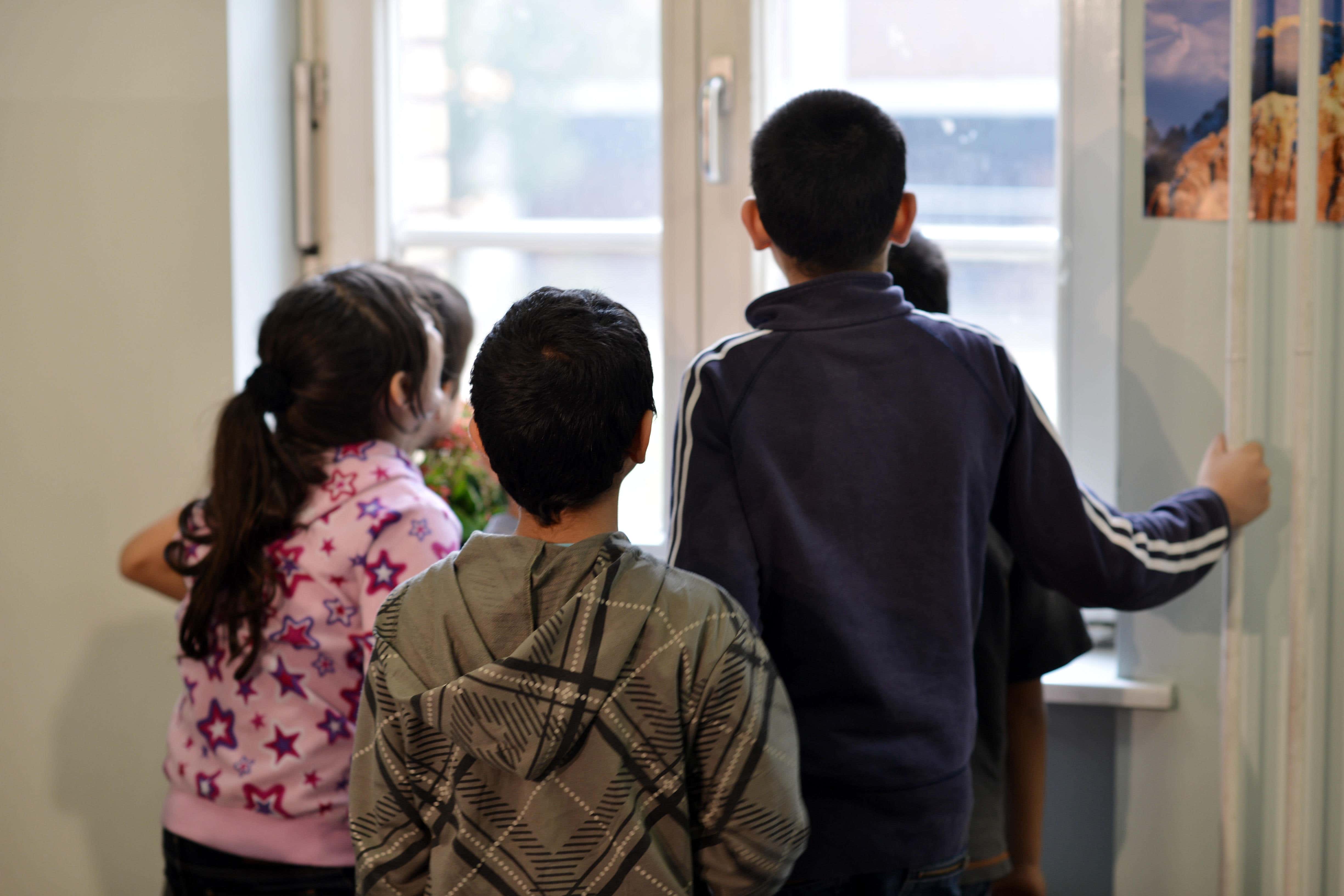System for moving asylum-seeking children out of hotels ‘simply cannot cope’
Society ‘cannot and should not’ have such children staying in hotels, said Local Government Association chairman James Jamieson.

Your support helps us to tell the story
From reproductive rights to climate change to Big Tech, The Independent is on the ground when the story is developing. Whether it's investigating the financials of Elon Musk's pro-Trump PAC or producing our latest documentary, 'The A Word', which shines a light on the American women fighting for reproductive rights, we know how important it is to parse out the facts from the messaging.
At such a critical moment in US history, we need reporters on the ground. Your donation allows us to keep sending journalists to speak to both sides of the story.
The Independent is trusted by Americans across the entire political spectrum. And unlike many other quality news outlets, we choose not to lock Americans out of our reporting and analysis with paywalls. We believe quality journalism should be available to everyone, paid for by those who can afford it.
Your support makes all the difference.The system for moving lone asylum-seeking children out of hotels and into long-term care placements is “overloaded” and “simply cannot cope”, a council leader has warned.
Society “cannot and should not” have such children staying in hotels, said councillor James Jamieson, who called for a better system across the country.
The Local Government Association (LGA) chairman said support for unaccompanied asylum-seeking children (UASC) and families settling in the UK is one of several “high-profile pressure” areas facing councils.
He told delegates at the National Children and Adult Services Conference in Manchester: “I know how hard all of you are working to settle children across the UK, but the system simply cannot cope.”
Engaging early, we could probably find better locations, better hotels, and we would be able to ensure that the support was in place
He added that recent changes to the National Transfer Scheme are “just not enough and the system is being overloaded”.
In August the Home Office said councils would receive extra money to incentivise them to move lone migrant children out of hotels faster, and said they would be required to take enough UASC to make up at least 0.1% of the total number of children in their local area – up from 0.07% previously.
Mr Jamieson said councils need more funding, more support for age assessments and quicker asylum decisions to be made.
He also called on the Government to engage with councils on the use of hotels in their local area.
It comes as the Government’s efforts to secure hotel space have faced challenges in the courts.
Mr Jamieson said he has heard a number of stories where councils have received a phone call saying a coach of 60-70 asylum seekers will arrive at a hotel in their local area in two hours, with no information on whether any arrivals are children.
He continued: “This is just unacceptable.
“Engaging early, we could probably find better locations, better hotels, and we would be able to ensure that the support was in place.”
It comes as Children’s Commissioner Dame Rachel de Souza said she was “extremely concerned” following recent reports of children sleeping on the floor and overcrowding in the Manston processing facility in Kent.
I'm quite keen on looking at whether specialist fostering, for example, might be a really good solution to the capacity problems that the chair mentioned
She has written a private letter to Home Secretary Suella Braverman asking how many UASC are in Manston and seeking assurances over their treatment.
Dame Rachel told the PA news agency: “So naturally… because my job is to protect and promote the rights of children in this country, I was extremely concerned, and that’s why I wrote the letter.”
On children living in hotels, she said: “I would like children out of those hotels, they should be in a proper care setting.
“I think we might need to get a bit more creative about it, about how to deal with it, because… quite a lot of those children are older children, and I think there might be… I’m quite keen on looking at whether specialist fostering, for example, might be a really good solution to the capacity problems that the chair mentioned.”
The Home Office said it is working around the clock with councils to seek placements.
It said: “As recognised by the Chief Inspector, the Home Office does not want to be accommodating children in hotels but we have no other choice.
“The mandatory National Transfer Scheme is there to ensure that all local authorities support these young people and works to end the use of hotels.
“We are working on an exit strategy for using hotels for UASC.”
It said the welfare of UASCs is “our utmost priority”, with Manston not routinely used to process this group.
It added: “Manston remains resourced and equipped to process migrants securely and we will provide alternative accommodation as soon as possible.”